Last Quarter: Eternal summer
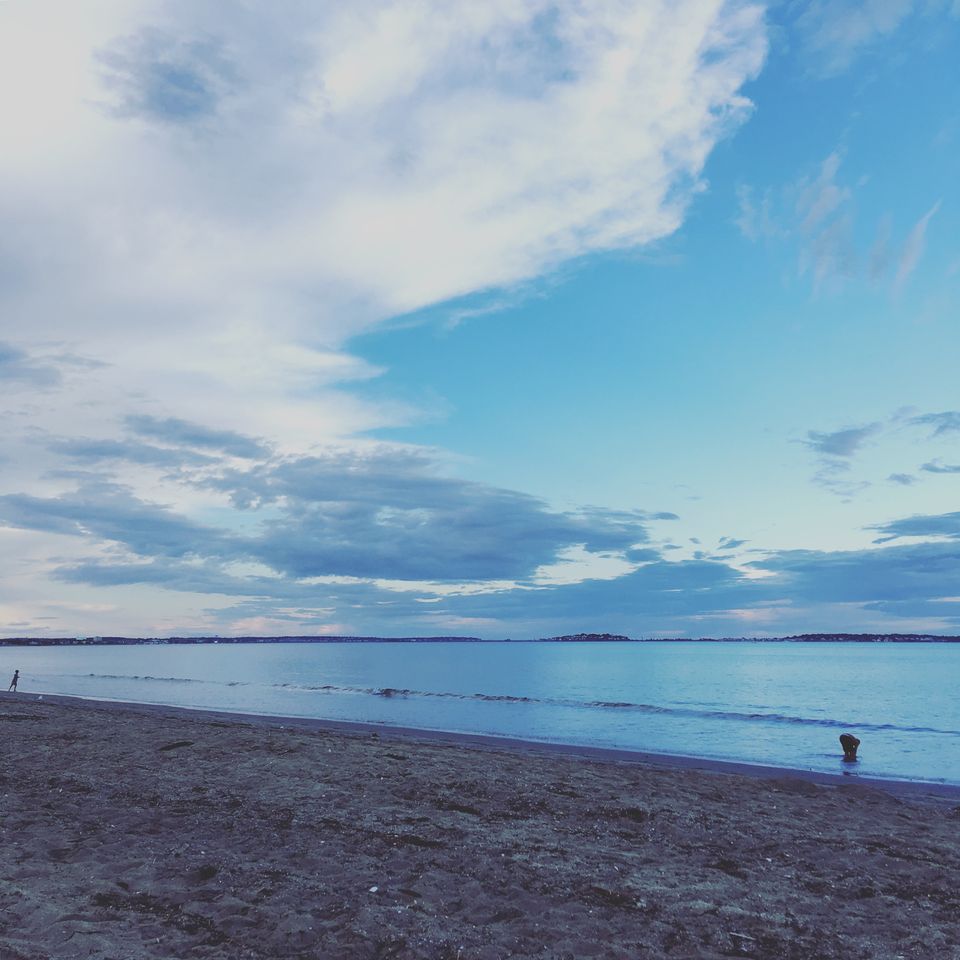
Hello again. It's Friday once more. And as with most other Last Quarter posts, this could be heavier reading. But I'm trying to rewrite something that I wrote on Mastodon, years ago, and which I haven't been able to find again — and lacking the original reference, I find the words leaving my fingers in a rather new way. Hopefully it still conveys what I had been thinking about in the past.
I had, and have, been thinking about getting what you wish for.
I. Apologies to Robert Frost
Because our elders knew of fire,
They defied the ice.
So all a wise soul should desire
Would have to be the warmth of fire.
But if we made our wishes twice,
I think we know enough of heat
To say that for salvation ice
Is also great —
O what a price.
II. One to two million years of burning
I have referenced Frost's poem before. But the heart of things here is: for far longer than humans have ever written words or made art, we have been burning things. As anatomically modern Homo sapiens we have made fire for about 125,000 to 300,000 years, depending on how long you think our species has even existed. That is to say: controlled fire is even older than humans are.
Conservatively estimating, cooked food might be about 780,000 years old, begun by Homo erectus — a hominid, but in the strictest scientific sense not a human. There is also substantial evidence that Homo erectus could control fire in general, even if not cook with it, starting about 1 Mya (million years ago). Less conservative estimates offer dating closer to 2 Mya.
Once our pre-human ancestors had tamed fire, we took it up. To kindle flame is innate. Maybe not innate like birds building nests, or like cats digging in sandy ground to shit; these animals don't need to be taught to do those things, they will simply do them on instinct, whereas a human of any age would need to personally think through how to re-invent fire control all over again if someone didn't show them the secret. But fire is innate to us as a cultural token. Besides tool use itself, one of the few universals we could ever ascribe to human culture is that we are fire wielders; to suggest we could ever not make and control fire, not even use the energy generated by the Sun's own fire, would be nearly as radical as suggesting we not use tools at all.
The benefits of fire to our species are so total and complete that I see us almost in a symbiotic relationship with the element of fire. We make places for fire to manifest itself, and in return the fire gives us safer, calorically richer food, and light to compensate for our poor night vision, and protection against predators, and warmth. The warmth didn't matter so much in places where we first evolved or migrated with naturally comfortable temperatures, but those were places where our ancestors had lost most of their thick body hair, possibly as an adaptation to stay cooler by sweating.[1] That same lack of hair was a problem when migrating into areas with regular below-freezing temperatures, though; and frankly I suppose that even if we all remained quite hairy, we couldn't have survived living in Europe, northern Asia, or a good swath of North America during the polar ice sheet and alpine glacier expansions popularly referred to as the Ice Age(s), more academically called the Quaternary Glaciation.
For hundreds of thousands of years, people on many parts of the planet needed fire just to be able to exist. And fire was not a completely selfish, anthropocentric tool, either. Just as early humans hunted many megafauna to extinction but developed conservation mindsets around hunting that persist in indigenous societies today, likewise early fire use could cause harmful deforestation (by accident or eventually for agricultural clearing) but it could also be put to use in controlled burns that helped stop worse forest fires, another surviving but threatened indigenous practice. But in our earliest collective memories, anywhere with a winter season was a place where we had to live about a third to a half of the year under threat of death, with fire as our deliverance; the longer and harder the winter, the worse the threat, and the more that fire could be sanctified as a specifically warmth-supplying mechanism, or as a device to preserve meat through the dead months (by smoking) and reheat frozen food stores.
None of this was evil, to use moralistic terms. And ecologically speaking, though we could already wreak havoc on our local environments if we didn't develop stewardship attitudes — one to two million years of burning fires did not, until very recently, have any statistically significant effect on the global climate.
III. Summerisle
At the end of The Wicker Man, the people of Summerisle sing a song dating to probably the middle of the 1200s CE.
Summer is a-coming in
Loud sing cuckoo
Groweth seed
and bloweth mead[2]
and springeth the wood new
Sing cuckoo
Ewe bleateth after lamb
Cow loweth after calf
Bullock starteth
Buck farteth
Merry sing cuckoo
Cuckoo cuckoo
Well singest thou, cuckoo
Never stop thou now
Sing cuckoo now • Sing cuckoo
Sing cuckoo • Sing cuckoo now
If winter is the time of death, it could be almost inevitable for many people to project winter's inverse, summer, as the time of life. Value judgments are appended accordingly. I can't speak to how this has manifested across all temperate or polar zone cultures, but in looking where I'm most familiar in European cultures, a primordial sense of winter-death-evil, summer-life-good has persisted for countless millennia. In the medieval period, during the first half of which Europe was even coincidentally warmer than precedent, some of the earliest surviving English language songs celebrate summer, frowning on winter either implicitly or as in the following example explicitly:
Merry it is while summer lasts
with fowl's song.
But now neareth wind's blast
and weather strong.
Ay, ay, what this night is long.
And I with well mickle[3] wrong
sorrow and mourn and fast.
These songs were sung in agrarian communities, and for the first song there's a mixture of attention given to wild versus domesticated animals. But that distinction aside, a certain throughline of European cultures existed that was the same everywhere else in the world: land-connectedness. And in any land-connected culture with a four-season ecosystem, summer deserved celebration as a facet of how humans depended on summer conditions, whether for farming or for hunting, fishing, and foraging. It was only natural to wish for a long summer, to consider it an absolutely positive season. In Europe specifically, some regions had short, mild summers, while other regions became actually hot for a few months; in some places the summers were dry and in others they were humid; but although we'll never know for certain, even the warmest medieval temperatures would have been comparable to earlier 20th century averages, not the temperatures we see in Europe today.
To put it another way, as European homes usually lack air conditioning because it wasn't a summer survival necessity last century, medieval Europeans probably wouldn't have had much use for air conditioning either.
IV. The exotic & the tropics
A few centuries before anthropogenic climate change properly started, Europeans had created and enshrined early capitalism, and they had embarked on colonial projects that would come to exceed all scope and damage of the empires elsewhere on the globe (or on European soil) that had come before. In this setting, the heat of summer was still to be cherished; however, Euro-colonizers increasingly found themselves presented with climates so hot that it might well exceed what budding proto-racists thought "white" skin was suited for.
Now of course, skin with low melanin is very prone to sunburns, which are more likely in the tropics, and although people with darker skin do experience sunburns, they experience them much less. But besides this material reality, exoticizing conceits cropped up among the racializers and the overall whitening European populace — about how the darker skinned peoples living in the tropics were "lazy and indolent" because they lived in luxuriously abundant jungles and never experienced cold weather, "the sort that hardens a man." Never mind that the stereotype of a flushed, overheated white colonizer sweating through their heavy clothes didn't come out of nowhere; never mind that wealthy Europeans settling in tropical landscapes were hardly doing their own work, rather setting up plantations where they had darker-skinned and/or indigenous slaves and next-to-slaves working the crops under brutally hot conditions.
Cognitive dissonance reigned. Tropical heat was a blessing to the colonizer, a promise of easy living, of eternal summer — yet somehow it couldn't be tolerated. Here I see the poison taking hold. The fruits of the tropics, literal or metaphorical, were to be extracted by the whitened empires, while those same empires resorted to profoundly distruptive, violent means that inflicted hard labor in tropical heat on anybody but themselves. Who should mind that warm weather isn't always an absolute good, if you can make sure you aren't the weather's victim?
V. Imperialist ironies
Industrial production was borne heavily out of the capitalist need to more efficiently deal with colonially exploited resources. In turn, this production fused with and compounded the colonial war machine. At the very forefront often sat anglophones — the aristocratic, military, and mercantile ruling classes of the British Empire, or the new slavery-operated republic of the United States.
Cotton gin, spinning jenny, power loom. Glassworks, chemical processing, mechanized animal slaughter.
Industry needs steam. Steam needs engine. Engine needs iron and steel. Industrial improvements make iron and steel faster to mine, smelt, sculpt. Steam comes from heat. Heat comes from fire. Fire comes from furnace. Furnace takes coal, releases atmospheric carbon.
At first a lot of industrial machines still got by on water power, human power, animal power. But with time, industrial machines themselves made coal mining more profitable. More coal out of the ground, more carbon in the air. Besides the pollution of watern and land by new industrial chemical dumping, air in many places became choking, disease-inducing, disgusting, as people had never known it to become except during, say, a forest fire. The earliest environmentalist movements in capitalist-colonial societies began in response to this.
All this before petroleum-powered transportation was even invented. But already, through empire-building the states and ideologies of Europe — especially Britain's and its anglocultural descendants' — had seized lands of eternal summer for themselves, and in the span of only a few decades they laid the foundations for lengthening and heating the summers in their homelands for what current models predict could be several thousand years. That prediction assumes humanity even neutralizes greenhouse gas emissions in the first place.
Summer is a-coming in.
VI. Getting what we wish for
Late winter: "I'm so tired of winter, summer now please."
Spring: "Summer's so close, I can practically taste it, hurry up!"
A rainy or cooler summer: "When will it really feel like summer?"
I hear these expressions a lot from various people. I understand the sentiment well enough in terms of how I, too, get tired of winter storms, look forward to not being outright cold all of the time, enjoy experiencing beautiful things you can only encounter in summer, and benefit as much as anyone else from soaking up a requisite amount of vitamin D each day. But when attitudes extend to looking at temperatures in the upper 80s Fahrenheit (30.5 to 31.7ºC) and saying, "Thank god, summer!" I have trouble relating as that's well above my own heat tolerance. However, it doesn't really matter how hot the weather is that any one person wishes for.
There is an ongoing, unthinking, consumerist cult of summer. Blockbuster beach body — dark skin in the summer sun is prized now, as long as it's white skin that got a tan — pool party tourist trap travel travel Disney theme park water park boardwalk you're not really alive the way you're alive in summer you're not really happy unless you're outside, drenched in sweat, ignoring mosquito bites, showing off your abs, sucking down a slurpee.
I don't lack love for some summer institutions within Americana itself. I feel a certain pull for ice cream stands, cookouts, drive-in movies, walking on beaches, watching fireflies after sundown. I was born in summer, a Leo blessed to have a birthday falling right around when my region's worst humidity would finally break as waves of thunderstorming cold fronts blew through.
But September now feels like August once did.
For those of us living in temperate and polar zones, or whose cultures were established there, the old praise and love for summer is so easy to cling to, return to, time and again, merry it is while summer lasts. For those of us who are specifically Euro-descendant, it could also be tempting to ask whether our very love for summer has driven us stupidly forward into forging a world where most other seasons may eventually diseappear.
That question strikes me as too reductive, though. It isn't that we've wished on a monkey's paw and the fingers have curled and now we've gotten some dramatically worse version of what we hoped. The irony hasn't self-inflicted so directly. It's more that when I hear voices thirsting for summer, coming from people who have benefited most (like me) from the structures that have destroyed land-connectedness and continue destroying the world we leave to children — I want to tell them that the old vision of summer is gone.
With heatwaves and hurricanes, we have undone summer's gifts and goodness. Some thousands of years from now, there seems some chance that surviving generations may rarely need or want to use fire, and that what everyone prays for will be the soothing touch of ice.
[1] Researchers seem divided about whether becoming "hairless" helped hominids by letting us operate more in the hot daytime when major predators were asleep, or whether it helped because as predators we could hunt more effectively without tiring out. I suspect it's a convergence of both factors, but it could also be something completely different that nobody's considered yet; evolution is not intentional, and even if helpful traits naturally tend to persist more than unhelpful ones, that can become an overly simplistic reading of biology.
[2] In modernizing the Middle English here, I've preserved some (though not all) archaicisms to keep the rhyme and meter. "Bloweth mead" isn't about wind or the alcoholic beverage; it would more literally be rendered as "bloometh meadow." Further down, the "starting" bullock is jumping or prancing, and the buck is either a stag or a billy-goat.
[3] "Mickle" means "very" or "a lot," preserved still in some Scots and north English dialects.
I'm glad to have finally reworked and published this. Make of it what you will. Thank you for reading it regardless. Next week I'm writing about commercialized satanism, and after that I'll have more thoughts on my choice to ritually prioritize homemaking activities.
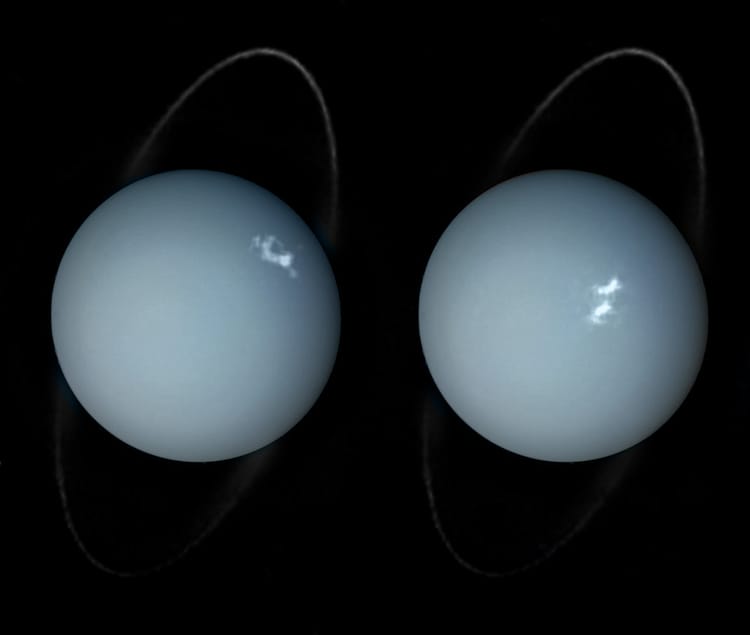
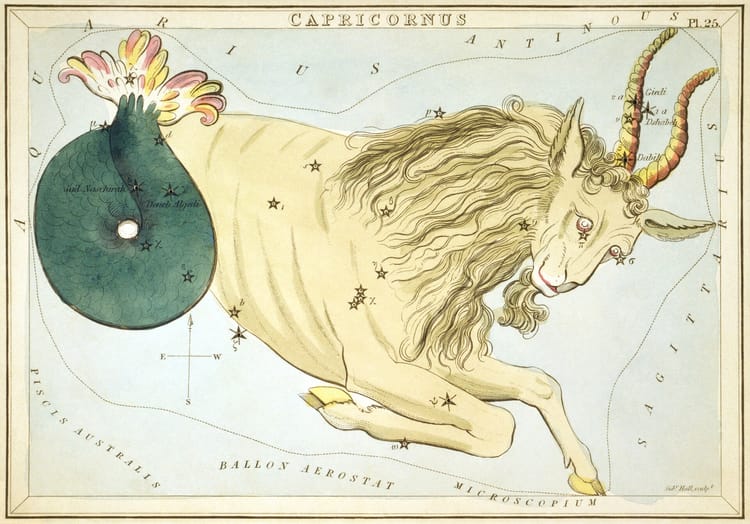
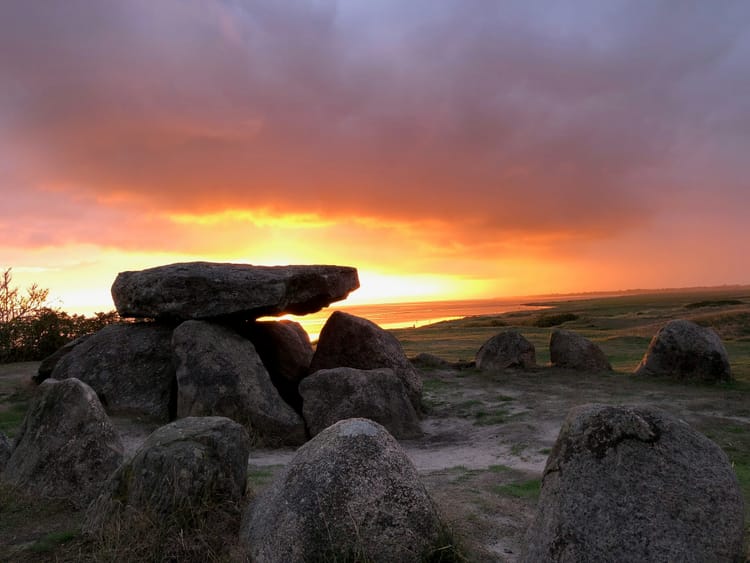
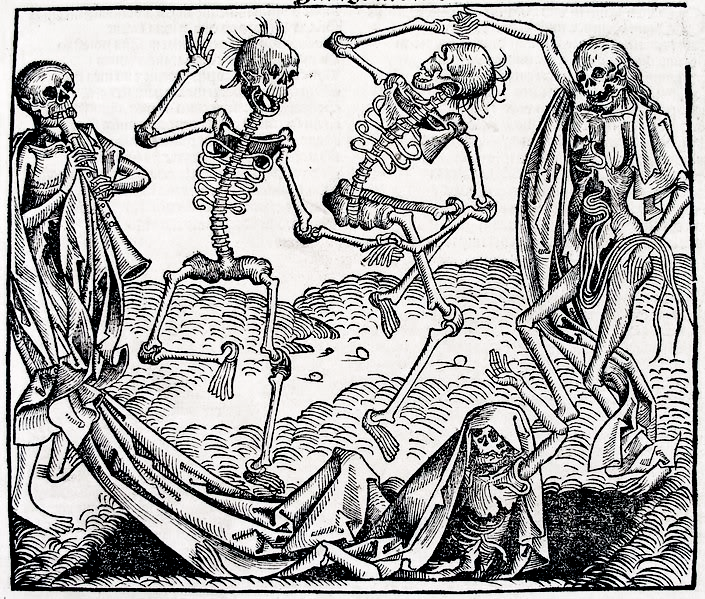
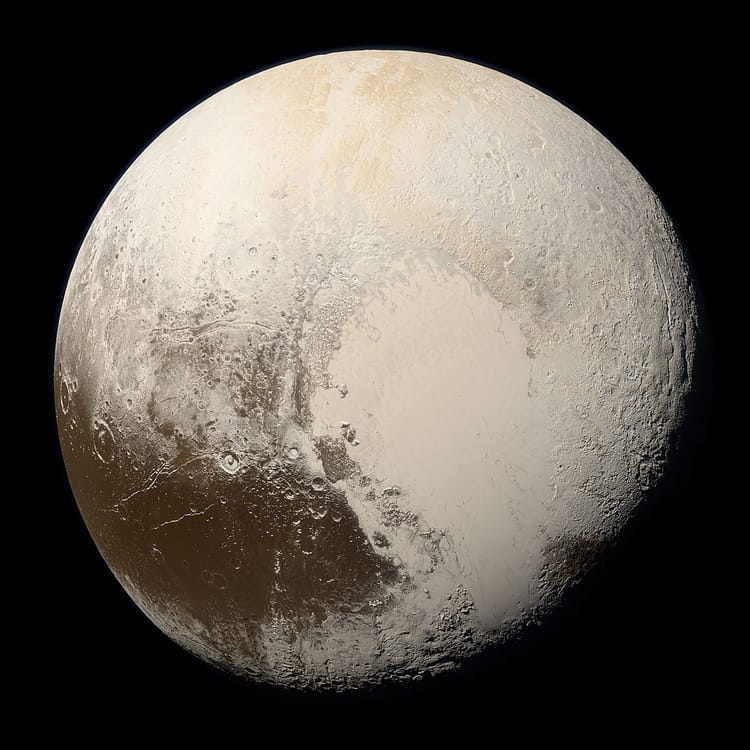
Member discussion